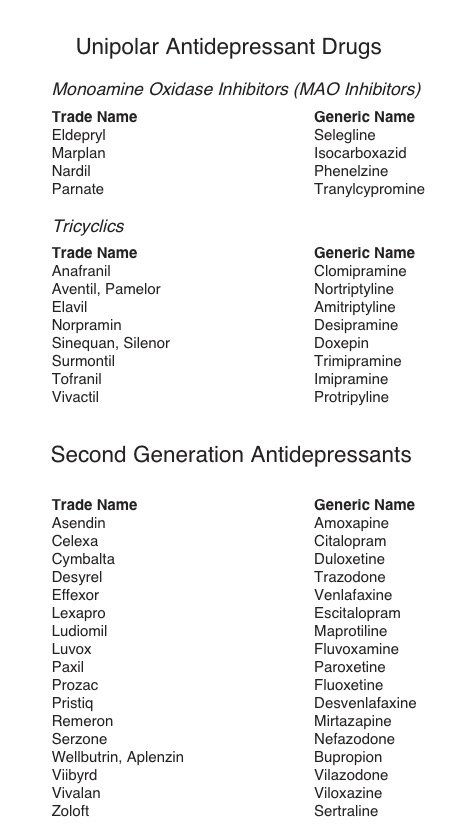|
|
Two groups of drugs developed in the 1950s for treating tuberculosis had the interesting side effect of making patients happier. (Sandler 1990) They were found to have the same effect on depressed individuals. (Kline, 1958; Loomer, Saunders & Kline, 1957) What these drugs had in common was their ability to slow the body’s production of the enzyme monoamine oxidase (MAO). They became known as mao inhibitors. The downside however, was a dangerous rise in blood pressure in people taking these drugs. In addition certain foods such as cheese, bananas and some wines should be avoided because of possible toxic interations when taking MAOs.
Tricyclics
Tricyclics also came about by accident, while researchers were creating a drug to fight schizophrenia. (Kuhn, 1958) The drug failed to help schizophrenia patients but did relieve unipolar depression in many people. The new drug and related other drugs became known as tricyclics or tricyclic antidepressants. As well as these drugs worked though, they were not effective for everyone for various reasons.
Second Generation Antidepressants
A third group of antidepressant drugs were developed that were structurally different from mao inhibitors and tricyclics. Most of these second generation antidepressants are called selective serotonin reuptake inhibitors (SSRIs), and work by increasing serotonin activity without affecting other neurotransmitters.
These second generation antidepressant drugs are very effective. They are preferred by clinicians because it is more difficult to overdose on them versus other antidepressants. But again, they don’t work on everyone. When this happens, patients are prescribed different drugs over and over until one, if any, is found that works.
Some patients experience weight gain or a reduction in their sex drive when taking second-generation antidepressants. (Uheretal, 2011)

This report is not a diagnosis. We hope this information can guide you toward improving your life.
Review our Knowledge Base or the links displayed on this page for similar and related topics.

